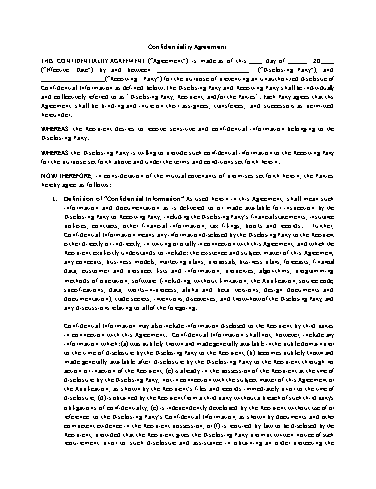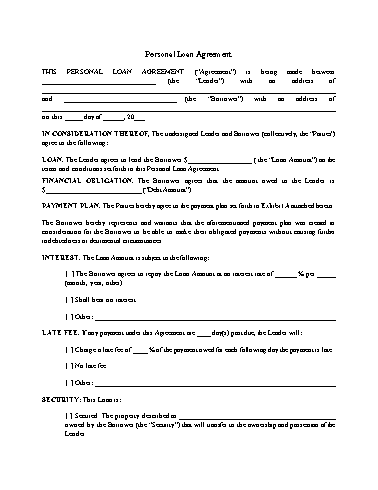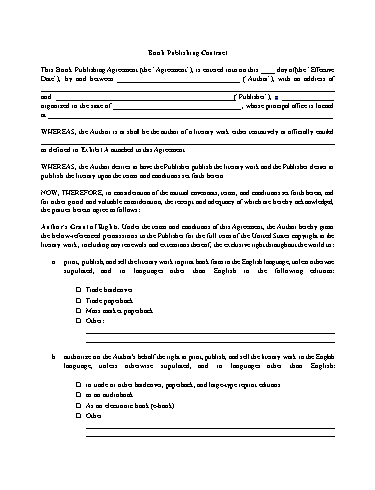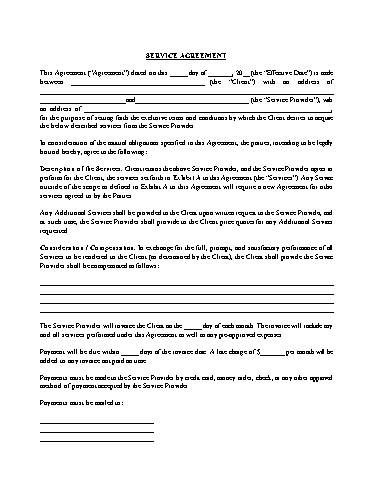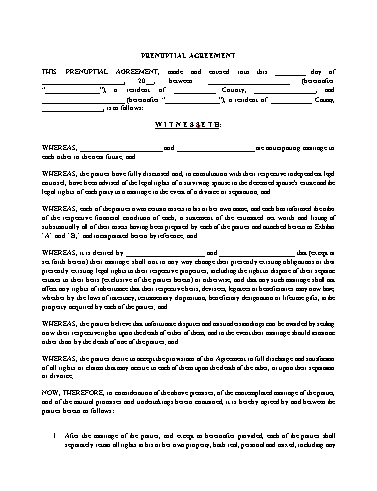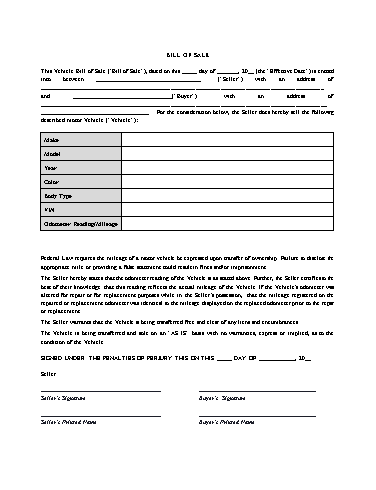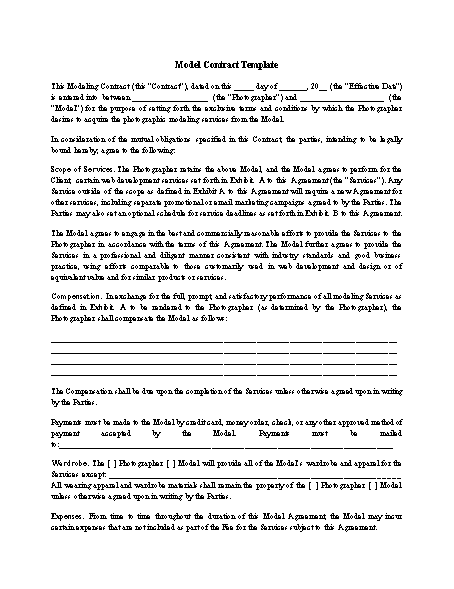Confidentiality Agreement Template
A confidentiality agreement is a legal document used to protect privileged information. A confidentiality agreement can be used by individuals or companies to protect proprietary information. This Confidentiality Agreement Template will provide:
- An easy to follow template
- Definitions of what is considered “confidential information”
- Tips on how to customize your confidentiality
The Importance of a Confidentiality Agreement A confidentiality agreement protects individuals or businesses to protect sensitive information. A confidentiality agreement is essential because it prohibits a receiving party from turning over confidential information that could be exposed to a competitor in a similar industry. Examples of sensitive information include:
- Consumer Information, Prospective Clients and Client List
- Operation Software
- Trade Secrets
- Intellectual Property
- Marketing Plans, Business Plans, and Proposals
- Financial Information
- Company Operations and Business Information
- Product Information
- Service Data
Other names for confidentiality agreements include:
- Non-Disclosure Agreement (NDA)
- Mutual Non-Disclosure Agreement (MDA)
- Confidential Disclosure Agreement (CDA)
- Proprietary Information Agreement (PIA)
- Secrecy Agreement (SA)
This type of agreement creates a confidential relationship between the two parties. Sometimes a contract will include a confidentiality clause. Such provision effectively protects confidential materials. In other situations, a business or individual may require a separate, more detailed confidentiality agreement. When is a Confidentiality Agreement Necessary? Confidentiality agreements are used in several different industries and for a wide variety of purposes. Basically, the agreement prevents the receiving party’s disclosure of confidential information. There are two types of confidentiality agreements: unilateral and mutual confidentiality agreements. So, when is a confidentiality agreement necessary? Here are a few common uses of a confidentiality agreement:
- Employer and Employee – A confidentiality agreement in an employment relationship prohibits the employee from revealing a company’s proprietary and protected information. The confidentiality agreement is not only effective throughout the individual’s employment, but it remains effective once the employment relationship has ended. Generally, a confidentiality agreement stays effective one to three years after the employee departs from the company. In some situations, the confidentiality does not expire depending on the industry and secret information disclosed throughout the course of employment.
An employer may require an employee to sign a non-compete agreement. A non-compete agreement restricts an employee from working with a competing company in a similar industry for a defined period of time. The non-compete could also limit the geographical region to where the individual is prevented from working for a competitor.
- Independent Contractors – Companies hire independent contractors or freelancers for various tasks. An independent contractor may consult with a company on marketing strategies, web design, and other projects.
- Lenders and Investors – An entrepreneur or business partners may require a loan to start up their company. A lender may be required to sign a confidentiality agreement to protect the joint venture’s business model and proposals.
- Inventors and Developers – If an inventor is interested in the licensing or sale of their product, design, or technology, it is crucial to protect their technology.
There are several situations where a confidentiality agreement may be necessary. Confidentiality agreements are legally binding documents and offer legal protection to the disclosing party. Should the receiving party divulge protected and privileged information, the disclosing party may seek legal action. What are the Essential Elements of a Confidentiality Agreement? The goal of any contract is to ensure the agreement is valid and enforceable. Here are a few components typically found in a general confidentiality agreement:
- The Parties – All parties subject to the confidentiality agreement should be identified as the “disclosing party” and the “receiving party.” It is also helpful to include their complete contact information on the agreement as well.
- The Definition of Confidential Information – Depending on the industry and specifics of the secret information to be protected, a clear definition should be included in the agreement.
- The Receiving Party’s Obligations – The receiving party should understand and agree that they are not permitted to disclose confidential information for their own benefit or the benefit of any third-party.
- Term – Depending on the industry and weight of the private information, a company may require the receiving party to be bound by confidentiality for a certain amount of years, which should be listed in the confidentiality agreement.
- What is Considered Confidential Information and What is Not – The agreement should define what is and what is not considered confidential information.
- Signatures – The document must be signed by all parties subject to the agreement.
Common Mistakes in Confidentiality Agreements A confidentiality agreement may not be enforceable if its terms are too broad or if the secret or if the information listed in the agreement is already public knowledge. It is important to seek legal advice when drafting a confidentiality agreement. Each state may have different requirements for what is considered enforceable and valid. How to Get Your Confidentiality Agreement Signed ApproveMe can help your company build and send confidentiality agreements in a quick and effective manner. Before an individual or business is privy to confidential information, the contract should be signed to ensure such information is protected. Helpful Resources Building a company and establishing a brand is tough. Here are a few useful resources to help raise brand awareness and boost consumer traffic:
Your Signing experience is worth celebrating!
ApproveMe is easy document signing for busy people. Built on the belief that every new agreement with a customer or client should be celebrated.
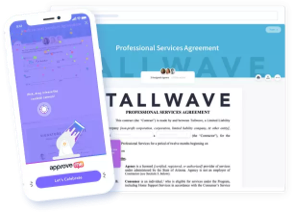
Confidentiality Agreement
THIS CONFIDENTIALITY AGREEMENT (“Agreement”) is made as of this ____ day of ______, 20____ (“Effective Date”) by and between ____________________________ (“Disclosing Party”), and ____________________(“Receiving Party”) for the purpose of preventing an unauthorized disclosure of Confidential Information as defined below. The Disclosing Party and Receiving Party shall be individually and collectively referred to as “Disclosing Party, Recipient, and/or the Parties”. Each Party agrees that this Agreement shall be binding and inure on their assignees, transferees, and successors as permitted hereunder. WHEREAS the Recipient desires to receive sensitive and confidential information belonging to the Disclosing Party. WHEREAS the Disclosing Party is willing to provide such confidential information to the Receiving Party for the purpose set forth above and under the terms and conditions set forth herein. NOW THEREFORE, in consideration of the mutual covenants of promises set forth herein, the Parties hereby agree as follows: 1. Definition of “Confidential Information” As used herein in this Agreement, shall mean such information and documentation as is delivered to or made available for inspection by the Disclosing Party to Receiving Party, including the Disclosing Party’s financial statements, insurance policies, contracts, other financial information, tax filings, books and records. Further, Confidential Information means any information disclosed by the Disclosing Party to the Recipient either directly or indirectly, in writing or orally in connection with this Agreement, and which the Recipient explicitly understands to include: the existence and subject matter of this Agreement, any concepts, business models, marketing plans, proposals, business plans, forecasts, financial data, customer and prospect lists and information, properties, algorithms, programming, methods of operation, software (including, without limitation, the Application, source code, specifications, data, works-in-process, alpha and beta versions, design documents and documentation), trade secrets, inventions, discoveries, and know-how of the Disclosing Party, and any discussions relating to all of the foregoing. Confidential Information may also include information disclosed to the Recipient by third parties in connection with this Agreement. Confidential Information shall not, however, include any information which: (a) was publicly known and made generally available in the public domain prior to the time of disclosure by the Disclosing Party to the Recipient; (b) becomes publicly known and made generally available after disclosure by the Disclosing Party to the Recipient through no action or inaction of the Recipient; (c) is already in the possession of the Recipient at the time of disclosure by the Disclosing Party, not in connection with the subject matter of this Agreement or the Application, as shown by the Recipient’s files and records immediately prior to the time of disclosure; (d) is obtained by the Recipient from a third party without a breach of such third party’s obligations of confidentiality; (e) is independently developed by the Recipient without use of or reference to the Disclosing Party’s Confidential Information, as shown by documents and other competent evidence in the Recipient possession; or (f) is required by law to be disclosed by the Recipient, provided that the Recipient gives the Disclosing Party prompt written notice of such requirement prior to such disclosure and assistance in obtaining an order protecting the information from public disclosure. the Recipient shall bear the burden of proof to prove one of the foregoing exceptions exists in the event a dispute arises between the Parties as to the Recipient’s breach of this Section. Other Information to remain confidential: __________________________________________________________________________________________________________________________________________________________________________________________________________________________________________ 2. Non-Disclosure of Confidential Information. The Receiving Party agrees that they will preserve and protect the confidentiality of the Confidential Information and all physical and electronic forms thereof, whether disclosed to the Recipient before or after the Effective Date. In addition, the Recipient shall not disclose or disseminate the Confidential Information to any third party and shall not use the Confidential Information for their own benefit or for the benefit of any third party. 3. Term. The rights and obligations of the parties under this Agreement expire ______ year(s) after the Effective Date; provided that with respect to Confidential Information that is a trade secret under the laws of any jurisdiction, such rights and obligations will survive such expiration until, if ever, such Confidential Information loses its trade secret protection other than due to an act or omission of Receiving Party. 4. Property Rights. The Disclosing Party retains all of its intellectual property rights in and to its Confidential Information. Immediately upon a written request by Disclosing Party at any time, the Receiving Party will turn over to the Disclosing Party all Confidential Information of the Disclosing Party and all documents or media containing any Confidential Information of the Disclosing Party and any and all copies or extracts thereof. 5. No License Granted. Neither the execution and delivery of this Agreement nor the furnishing of any Confidential Information of the Disclosing Party by the Disclosing Party shall be construed as granting to Receiving Party either expressly, by implication, estoppel or otherwise, any license under any invention, patent, trademark, or copyright now or hereafter owned or controlled by the Disclosing Party. 6. No Adequate Remedy at Law. The Receiving Party acknowledges and agrees that due to the unique nature of the Confidential Information of the Disclosing Party, there can be no adequate remedy at law for any breach of its obligations hereunder, that any such breach may allow the Receiving Party or third parties to unfairly compete with the Disclosing Party resulting in irreparable harm to the Disclosing Party, and, therefore, that upon any such breach or any threat thereof, the Disclosing Party shall be entitled to (a) specific performance and other injunctive relief without the necessity of posting a bond, in addition to whatever remedies it might have at law, and (b) be indemnified by the Receiving Party from any loss or harm, including, without limitation, attorney’s fees, in connection with any breach or enforcement of the Receiving Party’s obligations hereunder or the unauthorized use or release of any such Confidential Information of the Disclosing Party. The Receiving Party shall notify the Disclosing Party in writing immediately upon the occurrence of any such unauthorized release or other breach of which it is aware. Violation of this Agreement by the Receiving Party will entitle the Disclosing Party to an injunction to prevent such competition or disclosure and will entitle the Disclosing Party to other legal remedies, including attorney’s fees and costs. 7. Disclosure Under Court Order. The Receiving Party may make disclosures required by court order if the Receiving Party (a) uses reasonable efforts to limit disclosure and to obtain confidential treatment or a protective order and (b) promptly provides notice to the Disclosing Party of and allows the Disclosing Party to participate in the proceeding. 8. Return or Destruction of Confidential Information. At any time during or after the term of this Agreement, at the Disclosing Party’s written request, the Receiving Party and its Representatives shall promptly return to the Disclosing Party all copies, whether in written, electronic, or other form or media, of the Disclosing Party’s Confidential Information, or destroy all such copies and certify in writing to the Disclosing Party that such Confidential Information has been destroyed. In addition, the Receiving Party shall also destroy all copies of any Notes created by the Receiving Party or its Representatives and certify in writing to the Disclosing Party that such copies have been destroyed. 9. Notice. All notices or requests required or contemplated by this Agreement shall be in writing and (a) if from the Disclosing Party to the Receiving Party, shall be hand-delivered or mailed to ______________________________________________________________________________, or such other address as the Receiving Party shall specify in written notice to the Disclosing Party or (b) if from the Receiving Party to the Disclosing Party, shall be hand-delivered or mailed to ______________________________________________________________________________, or such other address as the Disclosing Party shall specify in written notice to the Receiving Party. Requests or notices given by personal delivery shall be deemed given and received at the time of delivery and requests or notices given by mail shall be deemed given and received the earlier of three (3) days from the date of mailing or upon receipt. 10. Governing Law. This Agreement shall be governed in all respects by the laws of the State of ___________________ without regard to the conflict of law provisions of such state. This Agreement shall be binding upon the successors and assigns of the respective parties. 11. No Waiver. No waiver of or failure to act upon any of the provisions of this Agreement or any right or remedy arising under this Agreement shall be deemed or shall constitute a waiver of any other provisions, rights or remedies (whether similar or dissimilar). 12. No Assignment. This Agreement shall inure to and be binding upon the undersigned and their respective heirs, representatives, successors and permitted assigns. This Agreement may not be assigned by either party without the prior written consent of the other party. 13. Severability. If any term or provision of this Agreement is invalid, illegal, or unenforceable in any jurisdiction, such invalidity, illegality, or unenforceability shall not affect any other term or provision of this Agreement or invalidate or render unenforceable such term or provision in any other jurisdiction. 14. Counterparts. This Agreement may be executed in counterparts, each of which shall be deemed an original, but all of which together shall be deemed to be one and the same agreement. A signed copy of this Agreement delivered by facsimile. email, or other means of electronic transmission shall be deemed to have the same legal effect as delivery of an original signed copy of this Agreement. 15. Electronic Signatures. This Agreement and related documents entered into in connection with this Agreement are signed when a party’s signature is delivered electronically, and these signatures must be treated in all respects as having the same force and effect as original signatures. 16. Entire Agreement. This Agreement constitutes the sole and entire agreement of the Parties regarding the subject matter contained herein, and supersedes all prior and contemporaneous understandings, agreements, representations, and warranties, both written and oral, regarding such subject matter. This Agreement may only be amended, modified, or supplemented by an agreement in writing signed by each Party hereto. IN WITNESS WHEREOF, the undersigned have executed this Confidentiality Agreement effective as of the _____day of ________________, 20__ (the “Effective Date”). Dated: _______________ _______________________________________ Disclosing Party’s Signature _______________________________________ Disclosing Party’s Printed Name or Entity Disclosing Party’s Contact Information: Address: _______________________________________ _______________________________________ Phone Number(s): _______________________________________ Email Address: ____________________________ Dated: _______________ _______________________________________ Recipient’s Signature _______________________________________ Recipient’s Printed Name or Entity Recipient’s Contact Information: Address: _______________________________________ _______________________________________ Phone Number(s): _______________________________________ Email Address: ____________________________
Frequently Asked Questions
How do I write a confidentiality agreement?
What is a standard confidentiality agreement?
A confidentiality agreement template is not only used for legal purposes, but it can also be used when two people are discussing sensitive matters in order to ensure that both parties are on the same page.
What is included in a confidentiality agreement?
A confidentiality agreement sample should include the following:
- The name of the parties involved in this agreement;
- A description of what type of information is to be protected (e.g., trade secrets, confidential business information, etc.);
- The terms and conditions under which this agreement will be terminated;
- The duration of this agreement;
- A clear explanation on how disputes are resolved.
What should I write in a confidential document?
What is a confidentiality statement example?
How long do confidentiality agreements last?
The length of confidentiality agreement template download sample varies depending on the type of agreement. Some agreements may only last for a few days while others may be indefinite or last for a lifetime.
what is a confidentiality agreement
what is confidential disclosure agreement
how to create a confidentiality agreement
do confidentiality agreements expire
The length of confidentiality agreements varies and is dependent on the type of agreement you're talking about. Agreements that cover a limited time span typically last for a few days, while those which are indefinite or last for the lifetime may take more thought to come up with.
how to make a confidentiality agreement
How to get a free confidentiality agreement template download
What is the purpose of a simple confidentiality agreement template?
Is a confidentiality agreement the same as a non compete?
The confidentiality agreement is not the same as a non-compete. A non-compete is a contract that an employee signs when they leave their current employer and agree not to work for any of their former employer’s competitors in the future
What is a confidentiality agreement in the workplace
Send Contracts in Minutes
Unlock the power of WP E-Signature on your website using your branding today!
Get Started Now

